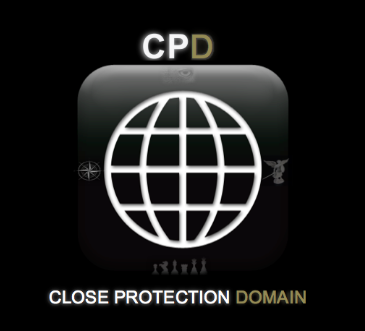5 things you don't get told on CVs
2 posters
Page 1 of 1
 5 things you don't get told on CVs
5 things you don't get told on CVs
I would like to add one thing from personal experience.
NO ONE CARES about how much of a great team player/reliable professional/mature individual you claim to be !!
It seems to be the standard CV format of ex British Servicemen, and each time I read one, I wonder why so much fluff.
Sad but true, recruiters want to know if you tick the boxes with quals, if you have done the same, or something a bit similar in the past with good companies, and maybe you can add a few things that make you look better (awards, medals, relevant hobbies). Period.
There is no single complete sentence on my CV, yet I do work (touch wood !). I've seen people with better quals and experience than me, who still struggle for work, simply because they flood their CV with useless sentences about all the great missions they've done in Afghanistan.
Good luck !
NO ONE CARES about how much of a great team player/reliable professional/mature individual you claim to be !!
It seems to be the standard CV format of ex British Servicemen, and each time I read one, I wonder why so much fluff.
Sad but true, recruiters want to know if you tick the boxes with quals, if you have done the same, or something a bit similar in the past with good companies, and maybe you can add a few things that make you look better (awards, medals, relevant hobbies). Period.
There is no single complete sentence on my CV, yet I do work (touch wood !). I've seen people with better quals and experience than me, who still struggle for work, simply because they flood their CV with useless sentences about all the great missions they've done in Afghanistan.
Good luck !
There are many different opinions of what the perfect CV consists of and how it should be structured. For those new to CV writing (such as soldiers leaving the Forces or those fresh out of education), it is a daunting prospect. Will you get it right first time? What should be included? How should it be written? If you are someone who is concerned about your CV or simply striving for perfection with it’s latest incarnation, then you would do well to realise these 5 simple points that are rarely ever mentioned:1. Your CV will NEVER be perfect.
No matter how much time you spend on it, you will never see it as perfect - you will always have concerns. This is natural and you should remember that the CV is a work-in-progress and will be for your entire career. Your circumstances will change: your qualifications and experience will progress; your own perception of what makes a good CV and what does not, will change. To that end, you should review your CV at the following times: at least monthly and / or prior to applying for a new job; upon the gaining of new qualifications or experience; as much as you can!2. Above all else, spelling and grammar are paramount.
Now some people may disagree with this statement, countering that experience and qualifications matter more. But at first glance a recruiter is going to get a negative perception of your abilities if it is poorly written - even before they are able to absorb what it is you are trying to convey in the content. Make the first impression a good one and don't fall at the first hurdle - make sure it is written in a manner that implies good understanding of the written word and never write in the first person (I am, I directed, I managed). Lastly - don't trust automatic spelling and grammar checks in software such as Microsoft Word.... see point 3.3. Never be satisfied with a new or revised CV until someone else has proofread it.
You cannot proof read your own work - you may spot some errors but your brain will miss many of those mistakes it made in the first place. As mentioned in Point 2, automatic spelling and grammar checks do not cut the mustard either. Choose one or two friends / colleagues that you know have good command of the written word, regardless of whether you consider yourself to be competent or not. They will spot mistakes you have missed. They also have their own experience in CV writing and may suggest amendments that you haven't considered. Definitely don't be afraid to show your CV to people - everyone has been in the same boat and most will be happy to help.4. The layout really isn't that important.
Unless the job you are applying for has specified a layout for applicants' CVs, do not be overly concerned about it. Should your qualifications be placed above your experience? Should you place your contact details on the footer of every page, just on the front page or just on the last page? Should you divide the CV into columns, or keep it as separate rolling sections? It really isn't that relevant, go with what you think is best but make sure each section is labeled clearly. For paragraphs, try and use font sizes between 10 and 12 points. If you are applying for a job that you have all the qualifications for, but maybe lacking a little in experience, then you might consider placing your Qualifications section above your Experience section, in order to make a good first impression at the first glance of the recruiter - this is of course assuming that the recruiter reads your CV from the top down, through every section, which they may not. Again the point is not to get bogged down about the layout, just make sure it isn't cluttered, there is enough space between paragraphs and sections and none of the content falls outside of a printer's boundaries.5. Personal information can be a minefield on a CV.
Unless the job description says otherwise, try and stay away from placing your photo, date of birth and address on the CV. There is generally no requirement for the above, but to include any or all of these details opens you up to potential discrimination. A case in point from personal experience was the receipt of a CV at my company from someone who was very well qualified and experienced. However, he had a photo on his CV that immediately put me off (he looked very old and we were looking for someone younger). However, as we hadn't specified a maximum age limit in the requirements, we brought him onto an assessment and interview - he looked much younger in the flesh and I learned a lesson. Recruiters and current legislation may place emphasis on equal opportunities and discrimination but in reality they cannot control the subconscious positive or negative impression they get from certain information, so why give them the opportunity.--
These points have come from my own experience with my CV and others. They are for your general consideration when writing your CV but by no means hard and fast rules as there are none - but my advice is to at least consider them along with advice from others.

Woedendstier- CPD Moderator

- Posts : 95
Join date : 2012-10-10
 Similar topics
Similar topics» MarSec- How not to do things...
» The CPD way of doing things - Why Member Vetting?
» Could the SIA learn or copy a few things from Spain?
» 13 Insane (But True) Things About the History of Bodyguards [Infographic]
» The CPD way of doing things - Why Member Vetting?
» Could the SIA learn or copy a few things from Spain?
» 13 Insane (But True) Things About the History of Bodyguards [Infographic]
Page 1 of 1
Permissions in this forum:
You cannot reply to topics in this forum
 Home
Home Register
Register Log in
Log in




» OSINT's books
» Hire Bodyguard in London
» Contact for work
» Updated CV
» Introduction
» Intersec 2017
» HLR/D-HLR Instructor Sweden
» CP SIA, MIRA Quaified